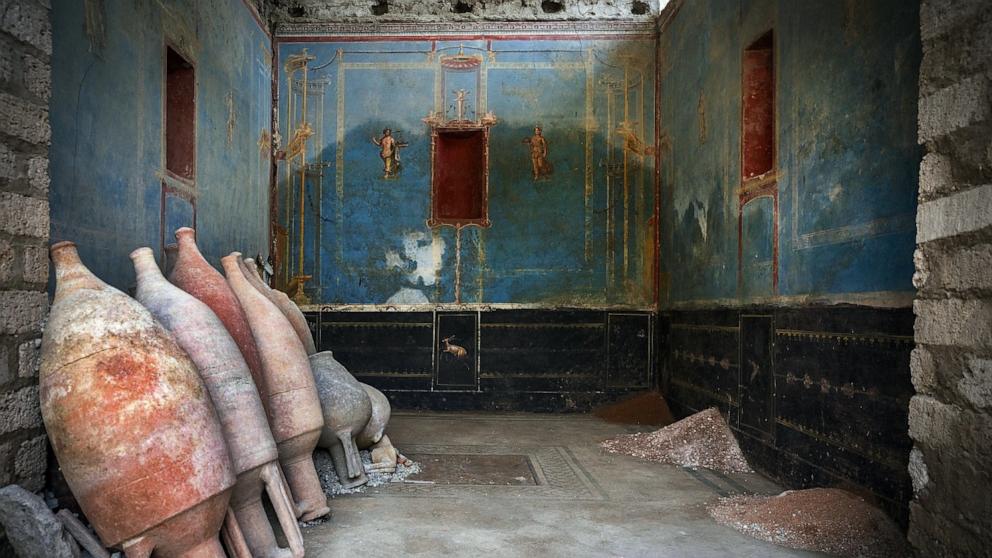
The room has been interpreted as a sanctuary, or Roman sanctuary.
It’s been thousands of years since the eruption of Mount Vesuvius left the Roman city of Pompeii in ruins, but the ancient archaeological site continues to make new discoveries.
Archaeologists recently discovered an ornate “Blue Room” featuring depictions of female figures on cerulean-painted walls. press release From the archaeological parks of Pompeii earlier this month.
The room, about 90 square feet, was initially discovered during the Bourbon period (1813-1840) but was recently excavated and put on display for the first time on May 27.
Experts believe that some of the murals represent the four seasons, or “horias.” Other murals are emblems of agriculture, such as the plow and the pedum, a short stick used by shepherds and hunters, according to the statement.
The color of the room is particularly important, according to experts, who note that “the blue in this room rarely appears in Pompeian frescoes, and was generally used in elaborately decorated rooms.”
The rare Blue Room has been interpreted as a Roman sanctuary “intended for ritual activities and storage of sacred objects,” experts said.
The pieces discovered in the room include 15 transport amphorae, or large vases, in addition to a group of bronze pieces consisting of two jugs and two lamps.
In addition, archaeologists excavated piles of building materials that were ready for use in restoration work. A pile of empty oyster shells was also found.
The excavation of the Blue Room is part of a larger project to “protect the vast heritage” of the city of Pompeii, which includes 13,000 rooms in 1,070 residential units, in addition to public and sacred areas, according to the statement.
In 2018, a discovery was made in a large villa located just outside the walls of Pompeii, far from the known archaeological area, during a joint operation between the Carabinieri forces of the Center for the Protection of Cultural Heritage and the Supervision of Antiquities of Pompeii.
Archaeologists working at the site uncovered buildings with large terraces in Pompeian red and geometric decorations of flowers and animals. They called it “Vicolo dei Balconi” (Balcony Alley).




More Stories
Journalists convicted in Hong Kong sedition case
Stand News: Hong Kong journalists convicted of sedition in case critics say highlights erosion of press freedom
Shark decapitates teen off Jamaica coast